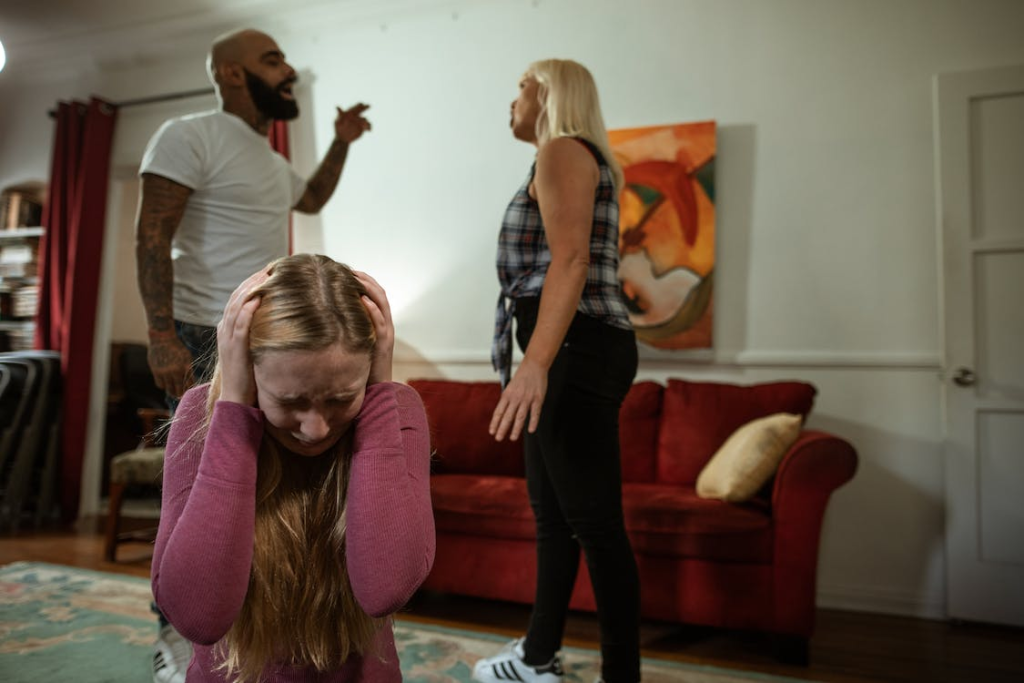It’s a situation no parent ever wants to face. A stranger shows up, says they’re from CPS, and starts asking questions about your children—sometimes even wanting to come inside your home. You’re caught off guard, unsure of your rights, and afraid of making the wrong move. This kind of unexpected visit isn’t just stressful—it could have serious implications for your family.
Every year, hundreds of thousands of child abuse reports are filed across the country. Many of these reports are anonymous and unverified at the time they are received. And while CPS plays a role in keeping children safe, not every visit means abuse occurred. Sometimes, misunderstandings or even false reports lead to these unannounced check-ins.
At Daniel Ogbeide Law, we know how overwhelming these encounters can be. As one of the leading firms offering support from a CPS attorney in Houston, we help families protect their rights when CPS becomes involved. If someone from CPS has already knocked on your door or you want to be prepared just in case, we’re here to help you understand exactly what they can and cannot do—especially if they don’t have a court order.
What Is CPS Allowed to Do Without a Warrant?
When CPS shows up at your home without a court order, their authority is limited. Here’s what they can do:
- Ask to speak with you
- Request to interview your child
- Ask to look inside your home
- Ask for your consent to take action
- Here’s what they cannot do without a warrant or exigent circumstances:
- Enter your home without your permission
- Remove your children unless they believe the child is in immediate danger
- Force you to answer questions
The Fourth Amendment protects you from unreasonable searches and seizures. That means your home cannot be searched—and your child cannot be taken—without either a warrant, your consent, or an urgent situation where a child’s life or safety is at risk.
Your Rights as a Parent During a CPS Visit
When CPS knocks, emotions run high. But knowing your rights is the best defense.
You have the right to:
- Refuse entry if they do not have a warrant
- Remain silent or refuse to answer questions
- Ask for legal representation before participating in any interviews
- Request identification and clarification of the complaint
Do not assume you must comply with every request. Even polite cooperation can sometimes be misinterpreted or used against you later.
What to Say (and Not Say) When CPS Comes Unannounced

The words you use during a CPS visit matter.
What to say:
- “May I see your ID, please?”
- “Do you have a court order?”
- “I’m not comfortable answering questions without my lawyer.”
- “I do not consent to any searches at this time.”
What to avoid:
- Making emotional outbursts
- Allowing entry without verifying credentials
- Talking too much without legal advice
- Signing any documents you don’t fully understand
One common mistake families make is thinking that cooperation will make the visit end quickly. That’s not always true. Without proper guidance from a CPS lawyer, saying too much—or saying the wrong thing—can complicate your case.
Can CPS Talk to Your Child Without You?
This is a question we hear often. The short answer is sometimes. If CPS has a warrant or if they interview your child at school or in public, they may not need your permission. However, if they show up at your home without a court order, they usually need your consent to speak with your child.
You can legally refuse this interview until you’ve spoken with your CPS attorney. And in many cases, that’s the safest route to take.
Common Mistakes That Can Harm Your Case
Some well-meaning actions can backfire. Avoid these pitfalls:
- Letting CPS inside your home immediately: This gives them a chance to document things that could be misinterpreted.
- Arguing or being hostile: This could be used to support claims of instability or danger.
- Allowing child interviews without supervision or legal advice: Children may be frightened or confused and say things they don’t fully understand.
- Signing documents under pressure: These could waive important rights.
When Should You Call a CPS Attorney?
If CPS is involved in any way, it’s time to seek legal counsel. Whether they’ve only contacted you by phone or they’re knocking on your door, it’s not too early to protect your rights.
A CPS attorney can help you:
- Understand the complaint or allegation
- Communicate directly with CPS on your behalf
- Guide your response to minimize risk
- Prepare for any interviews or home inspections
The earlier you involve a CPS lawyer, the more control you have over the process.
What If CPS Says They’ll Come Back With a Warrant?
You may hear something like, “If you don’t let us in, we’ll just get a warrant.” While this is sometimes true, it’s not automatic. A judge must find there is probable cause based on evidence or a credible report of harm.
That said, if CPS believes your child is in immediate danger, they might act without a warrant under emergency circumstances. This is rare—but not impossible.
Until then, you are under no legal obligation to let them in or participate in interviews.

Facing CPS? You Don’t Have to Do It Alone
Do you know your next move if CPS shows up again tomorrow?
A surprise visit can throw any family into crisis mode. But remember—CPS cannot act without limits. You still have rights, and you’re not powerless. If your child’s safety is being questioned or if CPS is trying to enter your home without a warrant, having the right legal support can make all the difference.
At Daniel Ogbeide Law, we work with families across Houston and beyond to protect parental rights and secure fair treatment. Our legal team includes one of the best CPS attorneys in Houston, TX, and we understand how emotionally and legally complex these situations can be. When your family is under scrutiny, you deserve an advocate who won’t back down.
If CPS has contacted you—or if you’re unsure how to handle a home visit—reach out to Daniel Ogbeide Law. We’re ready to help you take control of the situation with confidence and legal strength. Book a consultation today and find out how a CPS lawyer in Houston can stand between your family and unnecessary intervention.

